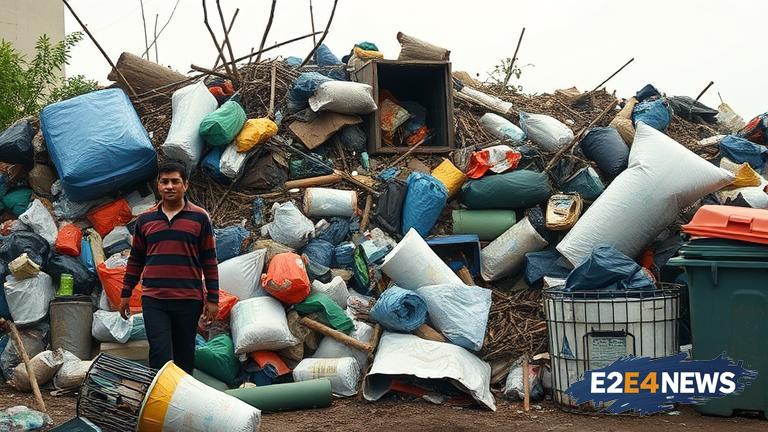In Indonesia, a country plagued by rampant waste management issues, activists are voicing their discontent with the government’s lack of support for waste reduction initiatives. The country’s waste bank program, designed to encourage recycling and proper waste disposal, has been hindered by insufficient funding and resources. As a result, waste continues to accumulate in landfills and waterways, posing significant environmental and health risks to local communities. The lack of government assistance has left waste bank activists feeling frustrated and disillusioned, as they struggle to make a meaningful impact in the face of overwhelming odds. Despite their best efforts, the sheer volume of waste generated in Indonesia has proven difficult to manage, with many waste banks operating without adequate equipment or infrastructure. The government’s inaction has also led to a lack of public awareness about the importance of proper waste disposal, further exacerbating the problem. In addition, the absence of effective waste management policies has resulted in the proliferation of illegal dumping sites, which have become breeding grounds for disease-carrying pests and pollutants. The consequences of inaction are far-reaching, with the World Health Organization estimating that improper waste disposal is responsible for a significant proportion of deaths related to infectious diseases. Furthermore, the environmental impact of Indonesia’s waste management crisis is substantial, with plastic waste and other pollutants contaminating the country’s waterways and harming marine life. The Indonesian government has been criticized for its lack of commitment to addressing the waste management crisis, with many arguing that the issue has been relegated to the backburner in favor of more pressing economic concerns. However, waste bank activists argue that the two issues are inextricably linked, with effective waste management being essential for promoting sustainable economic growth and development. In recent years, there have been some efforts to address the waste management crisis, including the introduction of new regulations and initiatives aimed at reducing plastic waste. Nevertheless, these efforts have been hindered by a lack of enforcement and resources, leaving many to question the government’s sincerity in addressing the issue. As the problem continues to worsen, waste bank activists are calling on the government to take immediate action to address the crisis, including providing increased funding and support for waste reduction initiatives. They are also advocating for greater public awareness and education about the importance of proper waste disposal, as well as the implementation of effective waste management policies. The international community has also been urged to take notice of Indonesia’s waste management crisis, with many calling for increased cooperation and support to help the country address the issue. In conclusion, the lack of government assistance for waste bank activists in Indonesia has significant implications for the country’s environmental and public health. It is imperative that the government takes immediate action to address the waste management crisis, including providing increased funding and support for waste reduction initiatives. By working together, it is possible to create a more sustainable and environmentally conscious future for Indonesia, one that prioritizes the health and well-being of both its citizens and the environment. The government must also prioritize the implementation of effective waste management policies, including the reduction of plastic waste and the promotion of recycling and proper waste disposal. Ultimately, the success of Indonesia’s waste bank program will depend on the government’s willingness to take action and provide the necessary support and resources. With the right approach, it is possible to make a meaningful impact and create a better future for generations to come. The Indonesian government has a unique opportunity to make a positive impact on the environment and public health, and it is imperative that they take advantage of this opportunity. The consequences of inaction will be severe, and it is essential that the government takes immediate action to address the waste management crisis. The international community must also play a role in supporting Indonesia’s efforts to address the crisis, providing technical assistance and funding to support waste reduction initiatives. By working together, it is possible to create a more sustainable and environmentally conscious future for Indonesia, one that prioritizes the health and well-being of both its citizens and the environment.
